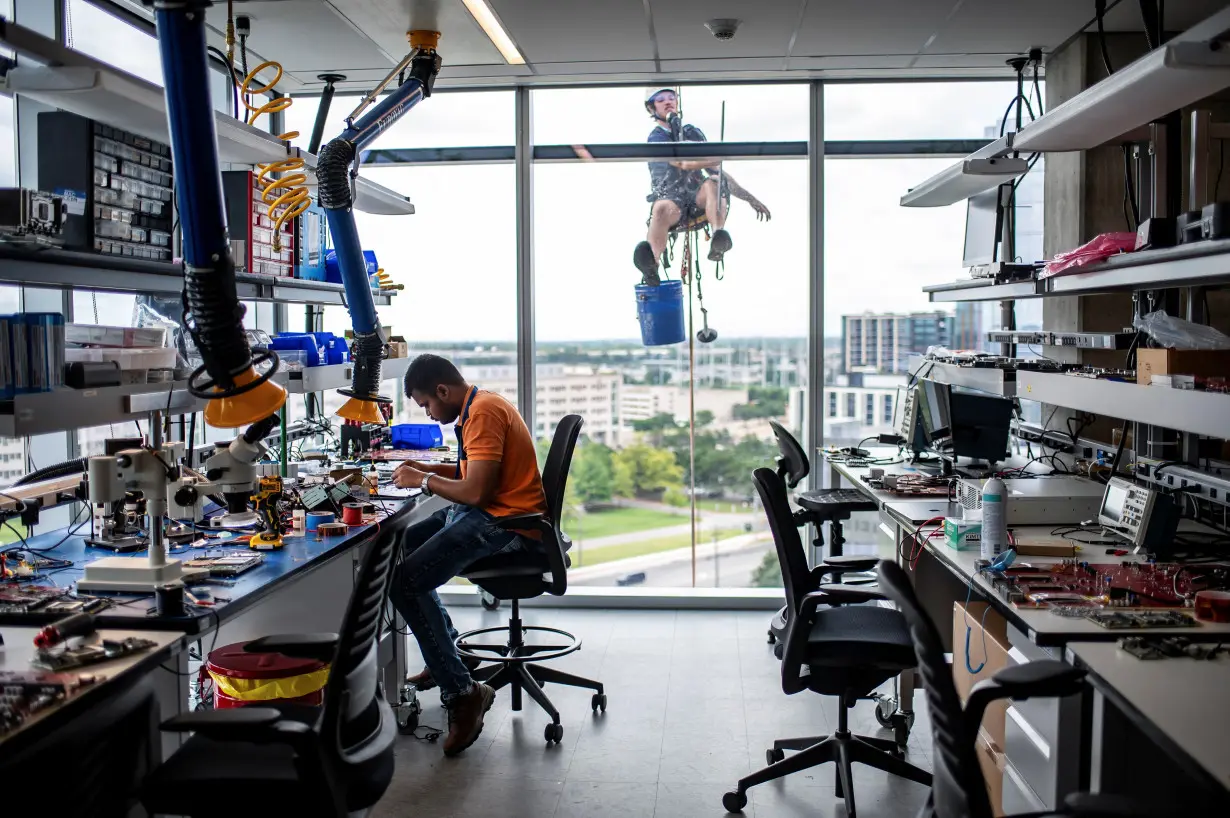By Max A. Cherney
AUSTIN, Texas (Reuters) - Inside Amazon.com's chip lab in Austin, Texas, half a dozen engineers on a Friday afternoon put a closely guarded new server design through its paces.
The server was packed with Amazon's artificial intelligence chips that compete with those from market leader Nvidia, Amazon executive Rami Sinno said on Friday, during a visit to the lab.
Amazon is developing its own processors to limit its reliance on costly Nvidia chips - the so-called Nvidia tax - that power some of the artificial intelligence cloud business at its Amazon Web Services, the main growth driver.
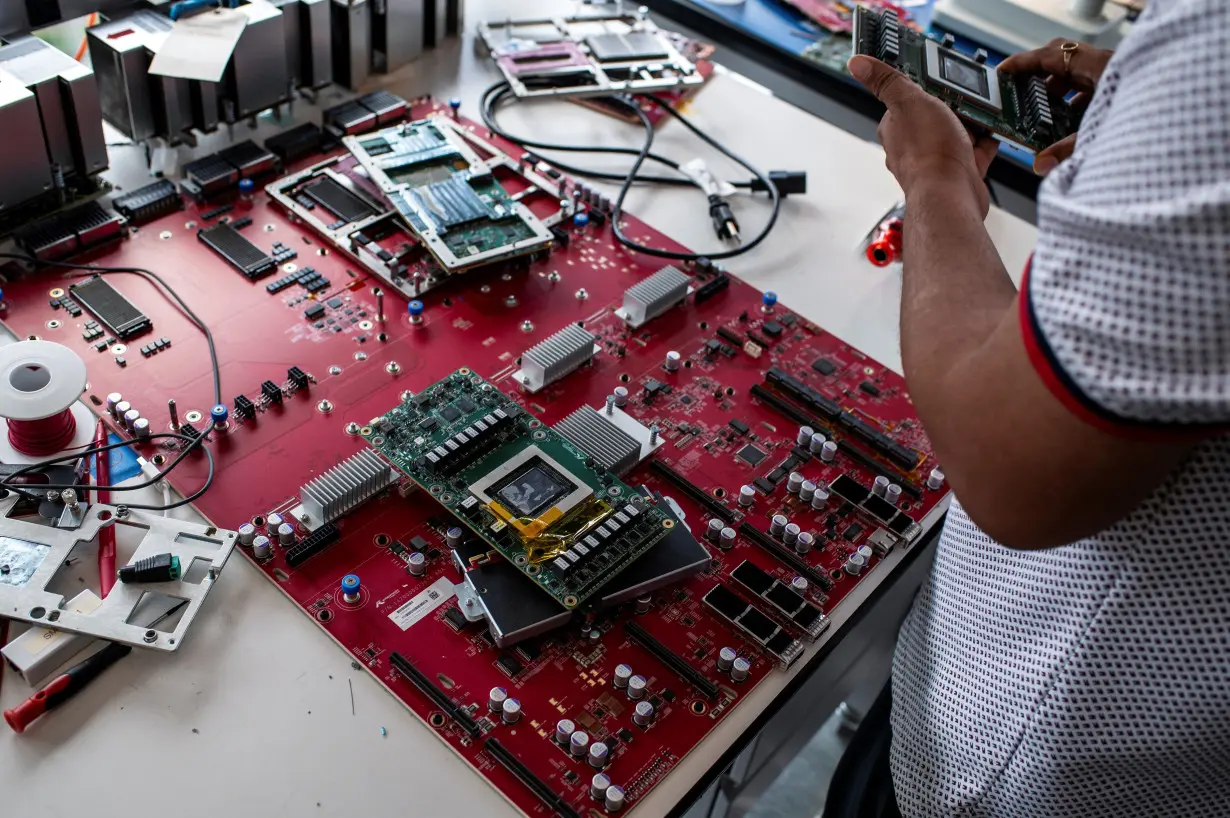
Through its homegrown chips, Amazon wants to help customers compute complex calculations and process enormous amounts of data more cheaply.
Its rivals Microsoft and Alphabet are doing the same.
Sinno, the director of engineering for Amazon's Annapurna Labs that is a part of its cloud business AWS, said Amazon's customers were increasingly demanding cheaper alternatives to Nvidia.
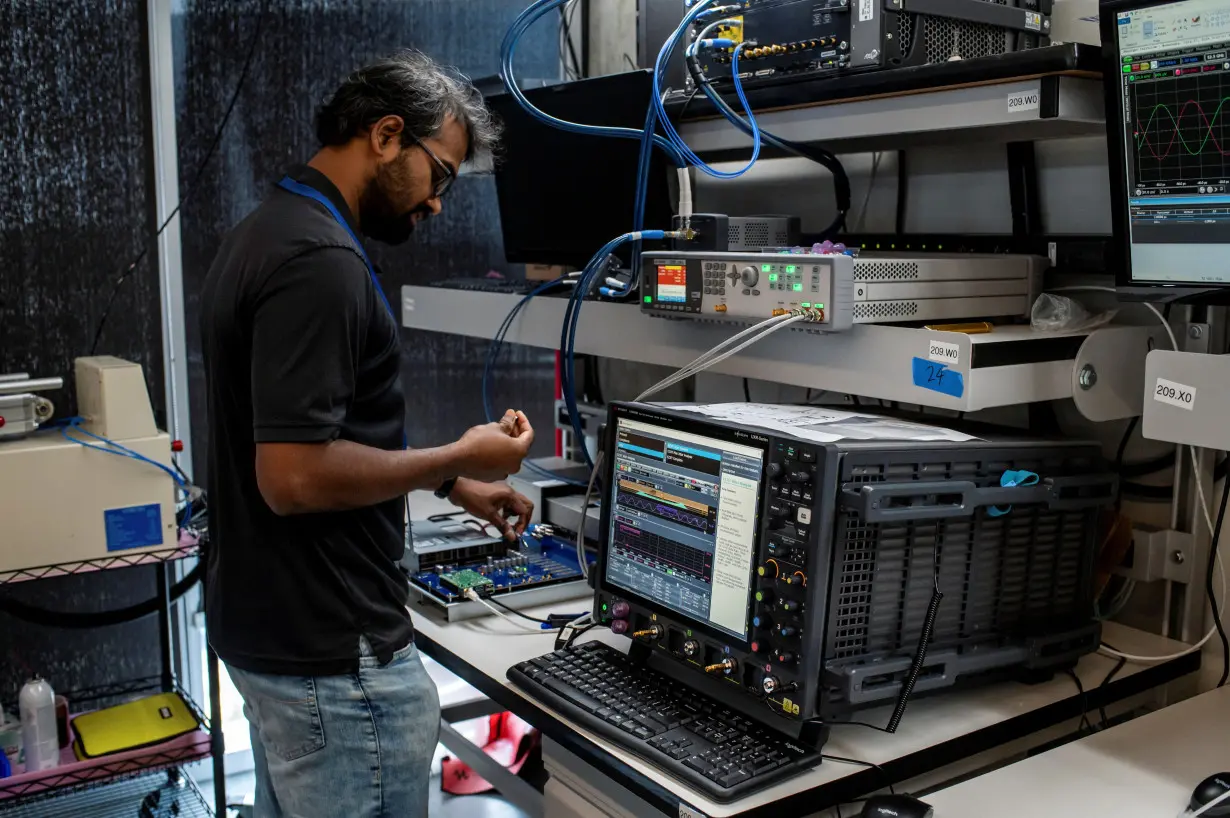
Amazon bought Annapurna labs in 2015.
While the company's AI chip efforts are nascent, Amazon's workhorse chip Graviton that performs non-AI computing has been under development for nearly a decade and is on its fourth generation. The AI chips, Trainium and Inferentia, are newer designs.
"So the offering of up to 40%, 50% in some cases of improved price (and) performance - so it should be half as expensive as running that same model with Nvidia," David Brown, Vice President, Compute and Networking at AWS said on Tuesday.
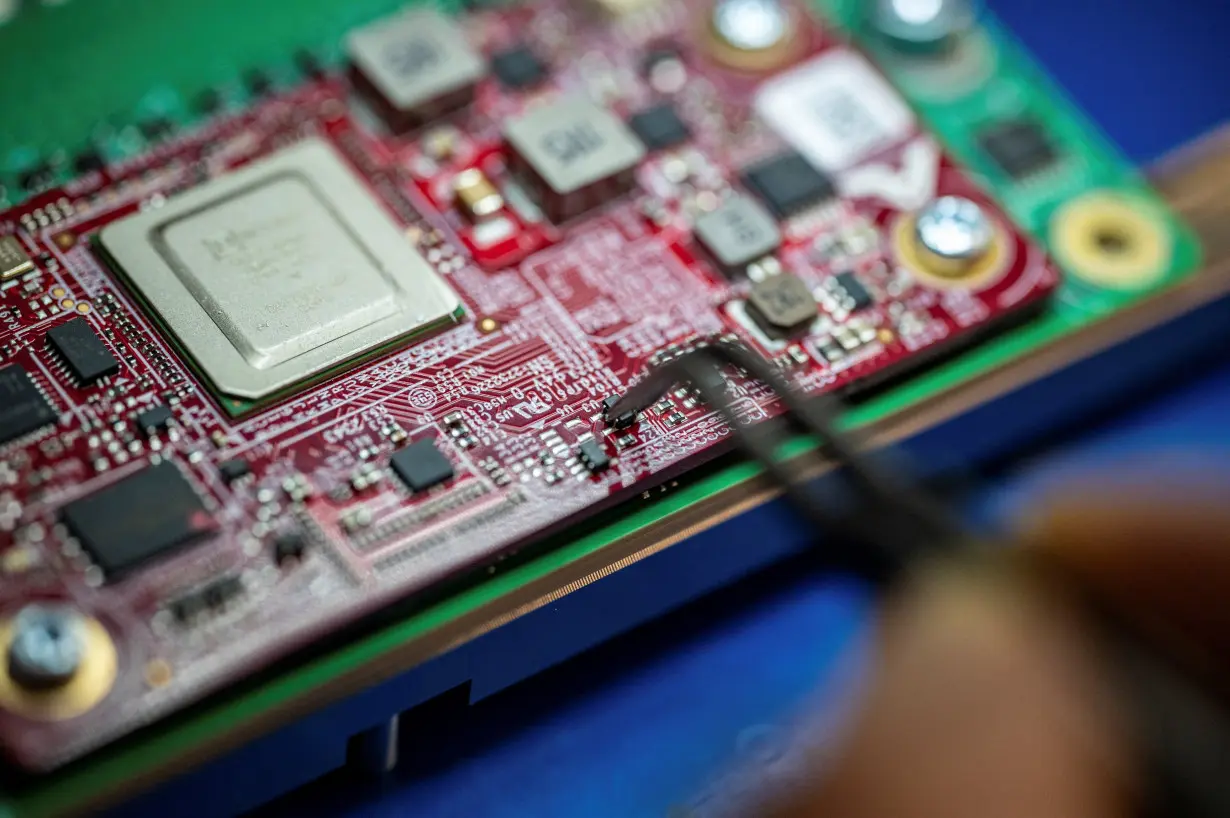
Sales at AWS, which accounts for just under a fifth of Amazon's overall revenue, surged 17% to $25 billion in the January-March quarter, compared with a year earlier. AWS controls roughly a third of the cloud computing market, with Microsoft's Azure holding about 25%.
During its recent Prime Day, Amazon deployed a quarter million Graviton chips and 80,000 of its custom AI chips to handle the surge in activity across its platforms, the company said.
The shopping event generated a record $14.2 billion in sales, according to Adobe Analytics.
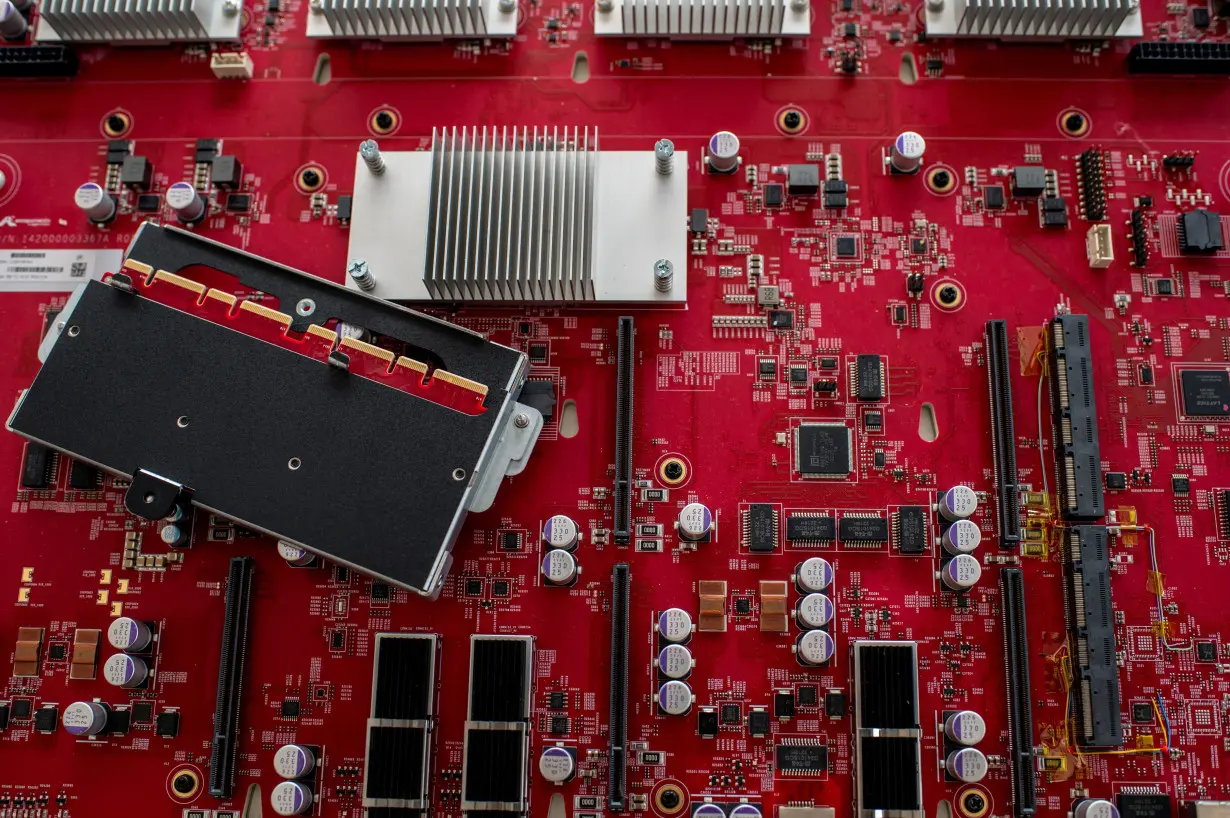
(Reporting by Max A. Cherney in Austin, Texas; Editing by Sayantani Ghosh, Matt Lewis and Nick Zieminski)

 Edmunds highlights the top car-tech trends from CES 2025
Edmunds highlights the top car-tech trends from CES 2025
 Joann files for bankruptcy — again
Joann files for bankruptcy — again
 German economy, Europe’s largest, shrinks for second straight year
German economy, Europe’s largest, shrinks for second straight year
 Comoros ruling party wins parliamentary elections, opposition rejects results
Comoros ruling party wins parliamentary elections, opposition rejects results
 Sweden seeks to change constitution to be able to revoke citizenships
Sweden seeks to change constitution to be able to revoke citizenships
 Confused about all the tax changes in the past decade? Just wait
Confused about all the tax changes in the past decade? Just wait
 US inflation likely remained elevated last month, threatening interest rate cuts
US inflation likely remained elevated last month, threatening interest rate cuts
 Coors Light is changing its name
Coors Light is changing its name
 Tiger Woods’ son Charlie chuckles while watching his dad suffer heavy defeat in TGL debut
Tiger Woods’ son Charlie chuckles while watching his dad suffer heavy defeat in TGL debut
 Bayern Munich signs US youngster Bajung Darboe from LAFC
Bayern Munich signs US youngster Bajung Darboe from LAFC
